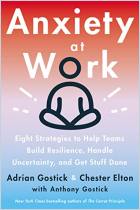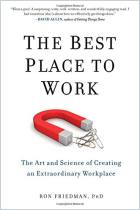Únase a getAbstract para acceder al resumen.

Únase a getAbstract para acceder al resumen.
Adrian Gostick and Chester Elton
The Invisible Employee
Using Carrots to See the Hidden Potential in Everyone
Wiley, 2009
¿De qué se trata?
Lure invisible employees out of the shadows and into the light by honoring their achievements.
Recommendation
When staffers feel “invisible,” that is, when their work goes unrecognized by their superiors, they lose motivation and become less productive. In fact, unengaged employees cost firms billions of dollars annually in lost productivity, mistakes, turnover, retraining, and so on. Business authors Adrian Gostick and Chester Elton propose that employees who feel valued and appreciated perform better. With the aid of a basic, symbolic fable and backed up by numerous studies, Gostick and Elton offer simple, concrete techniques managers can use to reward outstanding work. You might wonder why you need to read this book since many of these tips also appear in the duo’s previous bestsellers, including The Carrot Principle. Yet getAbstract believes that managers and supervisors who adopt this book’s valuable advice will be able to perform a transformation: Abracadabra! Unmotivated, disengaged employees suddenly will become visible – like magic.
Summary
About the Authors
Adrian Gostick and Chester Elton co-wrote the bestsellers The Carrot Principle and The 24-Carrot Manager. They are both vice presidents of The Carrot Culture Group consultancy.























Comment on this summary